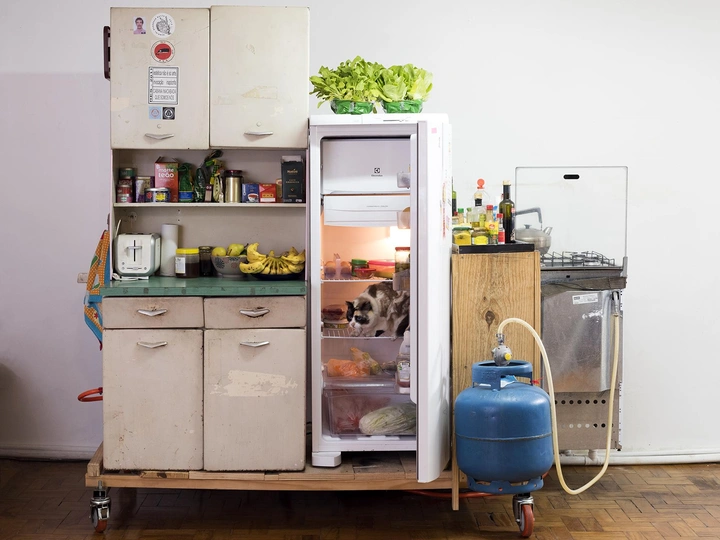MULTIRÃO: Rehabilitative Architecture Workshop

AVENTURA is a collective of varied personal praxes. We look at people, objects, and places—all in a constant flux of transformation—as a collective learning process. We believe it our responsibility to rethink what was given to us by resituating architectural and cultural traditions in a contemporary context.
Through multirões (working in common), gambiarras (subversion of functional use), and bricolage (using what’s available), we act collectively to (re)think and (re)build our immediate surroundings, product of a society exhausted by consumption, and contribute to its healing and future sustainability.
We have experience and technical expertise in a range of contexts, media, and scales, from software engineering to visual arts, passing through furniture design, architecture, and research:
Luca is an Italo-Brazilian artist raised in São Paulo and based in Berlin. He is a graduate of FEA-USP. Aside from AVENTURA, Luca founded projects between art and architecture, including Nail on Wall and OPCAC. Since 2011, Luca produces art that has received awards and been exhibited both individually and collectively in Brazil and abroad, in addition to features in publications.
Cristóbal is from the Americas, broadly, but based in São Paulo. He studied computer science, among other liberal arts, at Stanford University. He designs and maintains interactive audiovisual systems with a focus on human control and feedback, some as staff at Reduct. In his art practice and as a member of AVENTURA, he is interested in the relational fields formed between urban life and improvisational practices.
Rafael is a Brazilian architect, artist, and builder, who studied at FAU-USP. Aside from AVENTURA, he acts as project coordinator at Metro Arquitetos. In the past, he founded the architectural practices Neute Chvaicer, Despacho, and OPCAC. He has the joy of collaborating with the most amazing people, and wholeheartedly believes in working together to achieve greater goals.
Improvisational construction as a methodology for the intertwining of communities with their built environment. By addressing people’s specific needs, situated in particular places, self-construction serves as a pedagogical vehicle fostering agency and autonomy in this vital dimension of human life. Through the upcycling of local materials, the developed projects retain local colour, countering the homogenising force of globalised capital and avoiding the unnecessary extraction of further raw material from the Earth. Reappropriating waste of industrial production exercises re-focusing one’s gaze beyond marketed functionality towards raw material affordances.
We propose a series of MUTIRÃO—collective construction workshops—in partnership with various people, groups, and institutions to broaden the scope and impact of this methodology.
We have facilitated MUTIRÃO ranging from a few hours to a month, showcasing its remarkable versatility. For this proposal, we envision groups of up to 20 individuals, for one or two weeks. The workshop is divided into five stages: (1)Introduction—methodology and references, (2)Identification of the need—what are we building, where, and for whom, (3)Design and gathering materials—focused on discarded furniture, (4)Design-Construction, and (5)Reflection—collective analysis of the experience. Throughout the process, documentation is a fundamental way to take these local interventions to a larger scale. MULTIRÃO is not process-oriented. We believe interpersonal relationships flourish as a consequence of a collective goal, and these bonds are ingrained in the shared artefact.
Through the framework of MUTIRÃO, we aim to exchange our practices and with different stakeholders across Europe. Mutirão does not signify the culmination of a practice but rather serves as a starting point. From this methodology, we can engage in collaborations through various formats such as lectures, commissioned work, publications, exhibitions, and more.